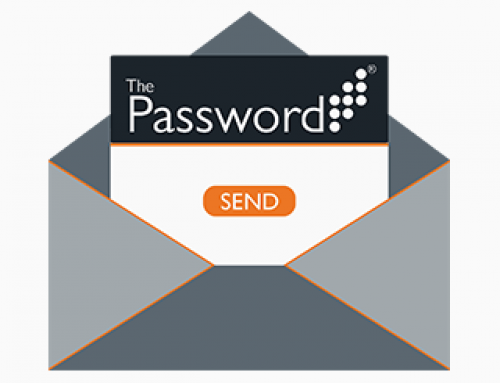Through our partnership with SSL Post, we offer our customers the option to deliver electronic payslips through an online portal. Read on to see why this is a fantastic option for payroll departments in schools.
Receiving your salary documents in hardcopy is fast becoming a thing of the past. The time, effort and cost associated with paper payslips, P11Ds, P60s and P45s is no longer sustainable during tight financial times. With budgets being cut to the minimum, cost savings across the whole organisation are being sought.
Switching to electronic payslips provides huge benefits to employers and employees alike. The cost associated with the production and distribution of the salary documents is substantially reduced and the employees benefit from access to PAYE documentation online, via their mobile device or desktop computer; at any time and any place that has internet access.
What are the issues?
Budgets and time are getting tighter; money and resource needs to be allocated wisely. In addition, staff expect quick and easy access to employment‐related documents at a time to suit them rather than requesting duplicates or spending time rooting through filing cabinets.
There is a legal requirement to protect personal data from falling into the wrong hands; that issue is detailed later on in this blog.
One of the most common issues in payroll departments is when an employee is making a financial application such as a loan or mortgage and proof of income is required. This also impacts the payroll department at self‐assessment time. The requests for copies of payslips or P60s is the primary task for some payroll staff and impacts on their ability to deliver against business objectives.
Staff can also be deployed across multiple sites, using hotdesking and remote working procedures. They may be absent from the organisation for multiple reasons; on seasonal contracts, holiday or sick leave. Sometimes it is not easy tracking them down to hand‐deliver payslips each month.
Why epayslips?
A far easier and more convenient solution is for salary documents to be presented in a self‐service portal that the employee could access themselves when information is required. This relieves the time and effort spent by payroll staff in retrieving, copying and redistributing the required documents. If historical documents are imported as part of the setup process, staff can access all documents, at all times. In addition, there is no need for the staff to be physically present to receive their payslip; it is posted to the secure portal to be collected by the staff at a time to suit them.
Hundreds of thousands of employees now receive their pay information online. Electronic payslip portals provide a quick, easy and convenient method by which to deliver payslips, P11Ds, P60s, P45s and other salary related documents. They can be used to send and store HR communication, contracts, auto enrolment and pension communications as well as all employment related communications. Employees prefer to access all salary and work-related documents in one place for convenience; in a secure place that can be accessed at a time to suit them, even if they are out of the office or away from home.
Organisations have an obligation to reduce their environmental impact and many have already switched to paperless systems to reduce waste and cost; the concept of online services is fast becoming the standard across all aspects of life.
Protecting data
The introduction of GDPR and subsequent adoption of the requirements within the Data Protection Act 2018 have required organisations to become accountable for their policies, procedures and practices with some pretty harsh consequences for those that fail to comply. It is very easy to fall foul of the Act; placing a payslip envelope in a pigeonhole, on a desk or even in the hands of multiple postal staff, carry the risk of interception and data breach. Electronic payslip portals substantially mitigate this risk by only allowing access to the documents to the intended recipient.
Selecting a provider
Once the decision has been made to review the methods used to deliver salary documents, we recommended some key steps:
Organisations have a responsibility to ensure that any processing of personal information is carried out under secure conditions; do your homework and perform a security risk assessment on any change of process planned.
When selecting a company to provide this service, it is recommended you carry out due diligence to ensure that both the supplier and the datacentre are working to the standards required under ISO27001 – the international standard for data security. Government sponsored, Cyber Essentials certification is also a bonus as it shows the provider has met or exceeded the required standards and demonstrates their commitment to cyber security for all data they handle on your behalf.
Obtain references from users of the solution and hear first‐hand what they think of the switch. They may also have some tips to help in the transition.
It is also helpful to establish whether the provider allows additional documents to be accommodated within the portal – some only allow payslips.
With all change, there will be some resistance which may be down to a simple issue such as lack of internet provision. Should a member of staff require a hardcopy payslip, does your provider allow for this to be easily produced during the delivery process?
Finally, is the provider’s solution suitable for your payroll software? Ideally, you are looking for a payroll software vendor‐agnostic solution that will seamlessly integrate with your existing software without the need for additional investment in hardware or a change in payroll software.
There is plenty to read about the benefits of electronic payslips on the internet. However, some are a long read and time is valuable. For a quick and easy visual guide, check out the table below. This table shows the key issues and requirements, versus the performance of epayslips and hardcopy. In addition, the benefits to employers and employees based on their feedback following the switch to an epayslip solution.
| WCBS ePAYSLIPS | Paper payslips | |
| Safe and secure delivery | Y | N |
| Fast delivery | Y | N |
| Fast ROI | Y | N/A |
| Encrypted until opened | Y | N |
| Track & trace at no extra cost | Y | N |
| Audit reporting | Y | N |
| Branded | Y | Y |
| P60/P45/P11D | Y | Y |
| HR communications | Y | Y |
| Auto enrolment letters | Y | Y |
| Multi‐site workers | Y | Y |
| Offshore workers | Y | N/A |
| Access 24/7/365 | Y | N |
| Suitable for remote workers | Y | Y |
| Accessible on mobile devices | Y | N |
| Historic document access | Y | Y |
| Multi‐media output | Y | N |
| Physical file storage required | N | Y |
| Hot desks and shared environments | Y | N/A |
| Physical presence required | N | Y |
| Printer required | N | Y |
| Printer consumables required | N | Y |
| Stationery required | N | Y |
| Postage required | N | Y |
| Reproduction required | N | Y |
| Deterioration/damage risk | N | Y |
| Resource | Light | Heavy |
| Time | Light | Heavy |
Get in touch
If your school is interested in moving your payslips online to gain all the benefits mentioned above, get in touch to discuss WCBS ePAYSLIPS. Email information@wcbs.co.uk or call us on +44 (0)1458 833 344.


